Five Funding Awards from the AKC’s Canine Health Foundation Set a Record for the Purdue University College of Veterinary Medicine
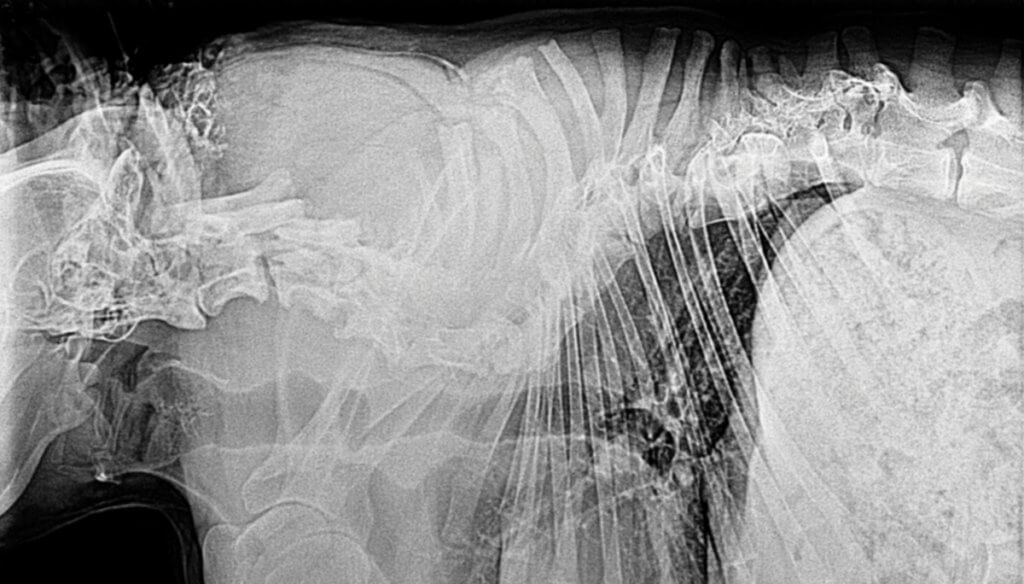
Purdue Veterinary Medicine’s commitment to advancing the health of animals in ways that also shed light on comparative diseases in humans will grow with several new grants from the American Kennel Club’s Canine Health Foundation. In 2019, the foundation awarded five grants to researchers in the College – the most the College has received in a single year from the AKC – to support studies in a variety of canine health research areas.
Many diseases that afflict dogs share a close relationship with corresponding human ailments, and the College has played a leading role in research that seeks to improve canine health while also helping to advance human medicine. The five new AKC Canine Health Foundation research grants awarded to the College target prevention, diagnosis and treatment of canine diseases and disorders of the eyes, skin, and spine as well as infectious diseases. The research projects are being led by four Purdue Veterinary Medicine faculty members.
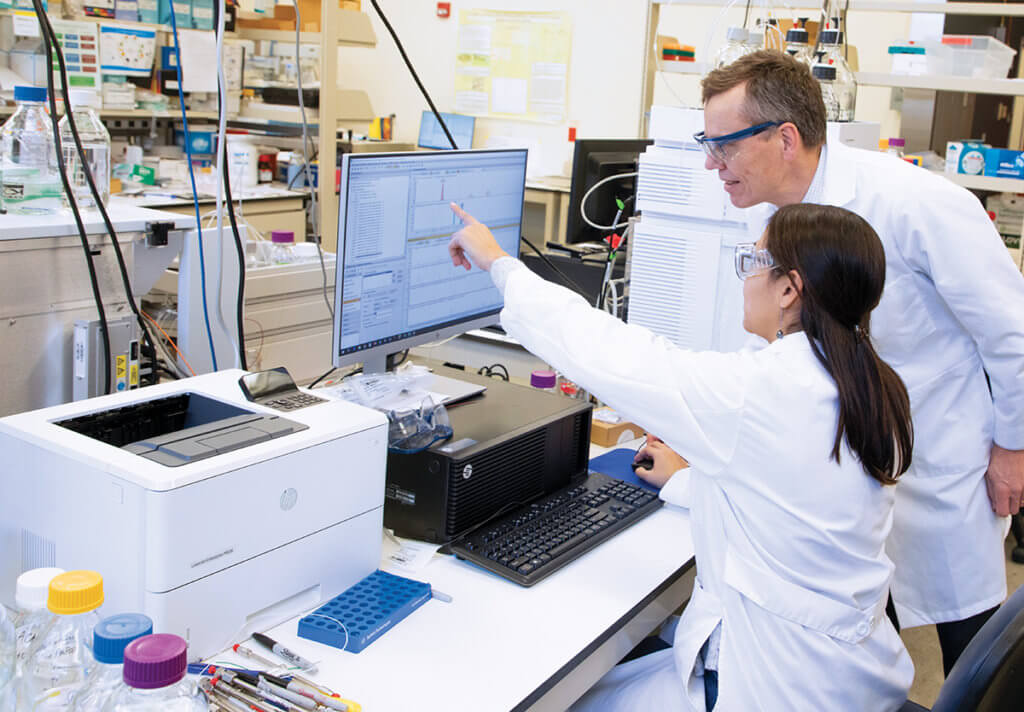

Dr. Harm HogenEsch
Dr. Harm HogenEsch, professor of immunopathology and associate dean for research, received a grant of just over $99,000 as the principal investigator for a study to discover novel biomarkers of canine atopic dermatitis (AD). This illness is a common allergic skin disease of dogs that can be severely debilitating and stressful to both the dog and its owner. AD is associated with changes in the composition of lipids or fat molecules in the epidermis or outer layer of skin. These changes may occur before inflammation or may be a result of inflammation.
“In this research we are performing a detailed analysis of the lipid composition of the epidermis and blood of healthy dogs and dogs with AD using a fast unbiased mass spectrometry strategy developed by our team of scientists with expertise in veterinary dermatology, analytical chemistry, biostatistics, and inflammation,” Dr. HogenEsch explained. Based on robust data obtained with skin samples from dogs as well as mice, the team anticipates that this research will lead to the identification of individual lipids or sets of lipids that can serve as biomarkers for the diagnosis of AD and for predicting and monitoring the response to treatment.
“This work will lead to a better understanding of the role of lipids in the pathogenesis of AD and may identify targets for novel therapies,” Dr. HogenEsch said. In addition, new tests that are part of the research involve collecting skin samples through minimally invasive skin scrapings or blood samples instead of biopsies, resulting in less stress to the dog as well as the owner. Dr. HogenEsch’s research team includes Dr. Paulo Gomes, clinical assistant professor of dermatology in PVM’s Department of Veterinary Clinical Sciences, as well as three scientists at Purdue University’s Bindley Bioscience Center, including Jackeline Franco pictured above with Dr. HogenEsch.
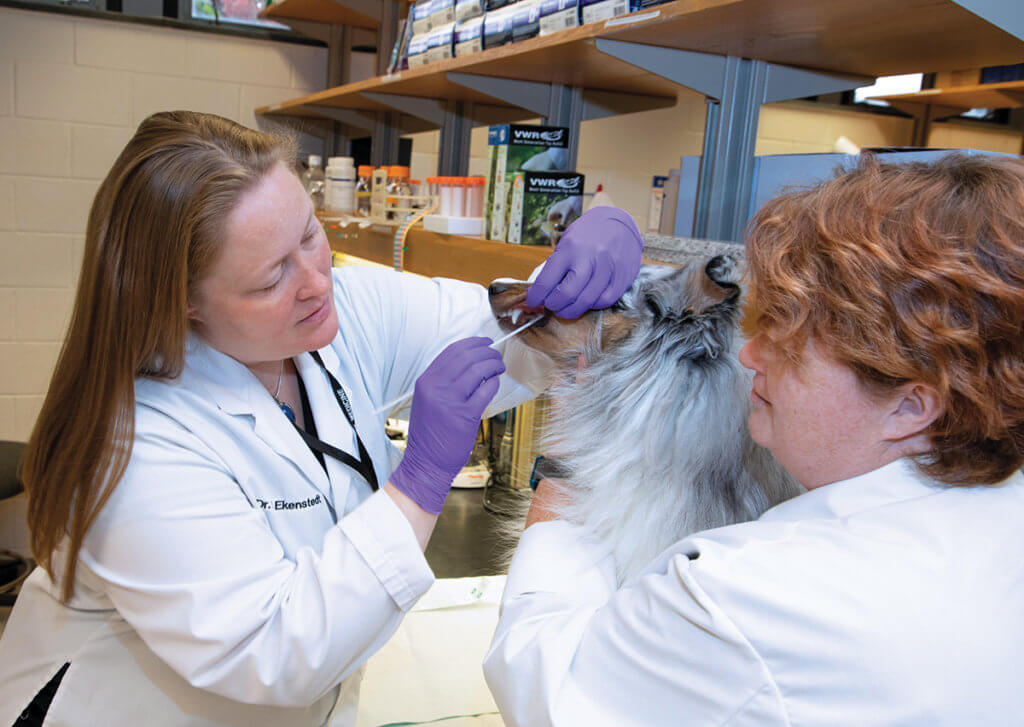
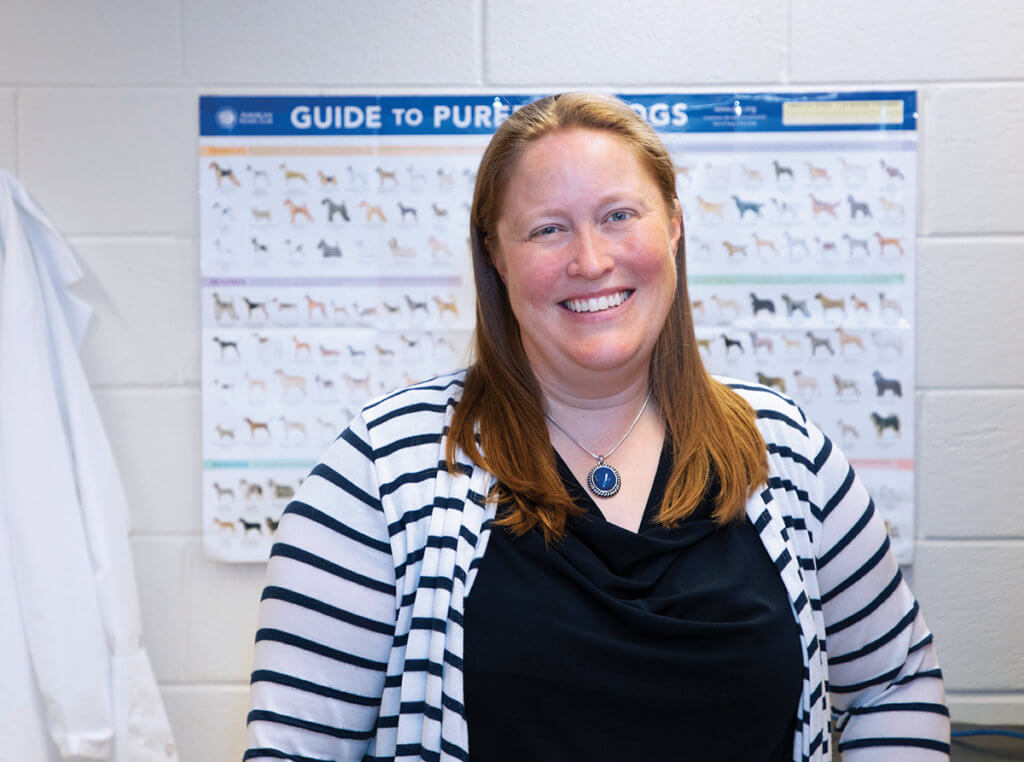
Dr. Kari Ekenstedt
Dr. Kari Ekenstedt, assistant professor in the College’s Department of Basic Medical Sciences, specializes in canine genetics and genomics. She received a grant of nearly $113,000 for a study entitled, “Genetic Basis of Canine Spinal Abnormalities.” The research aims to identify the genes and risk alleles (alleles are variant forms of genes) to provide a better understanding of the genetic basis of canine spinal abnormalities using comparisons between affected and unaffected dogs.
“The ultimate goal is to develop genetic tests and/or a genetic risk model to help predict spine health in breeds with tightly curled tails, such as Pugs, French Bulldogs, and English Bulldogs,” Dr. Ekenstedt said. The study will utilize DNA samples in a combined approach of genome-wide association analysis and whole-genome sequencing.
“Specific treatments for many inherited diseases cannot be developed until we know much more about the basic genetic and molecular changes involved in the development of these diseases,” Dr. Ekenstedt explained. “We are currently conducting research on multiple naturally occurring musculoskeletal, neurological, and ophthalmic diseases in dogs, many of which are identical to those seen in humans. If accurate predictive genetic risk models can be developed, they would ideally allow selection of dogs with the desired, breed-defining curly tail, while allowing selection against abnormalities in other spinal segments that can result in disease.” By fostering a better understanding of the genetic causes of diseases, Dr. Ekenstedt’s research program holds promise for improving the health of both dogs and people.
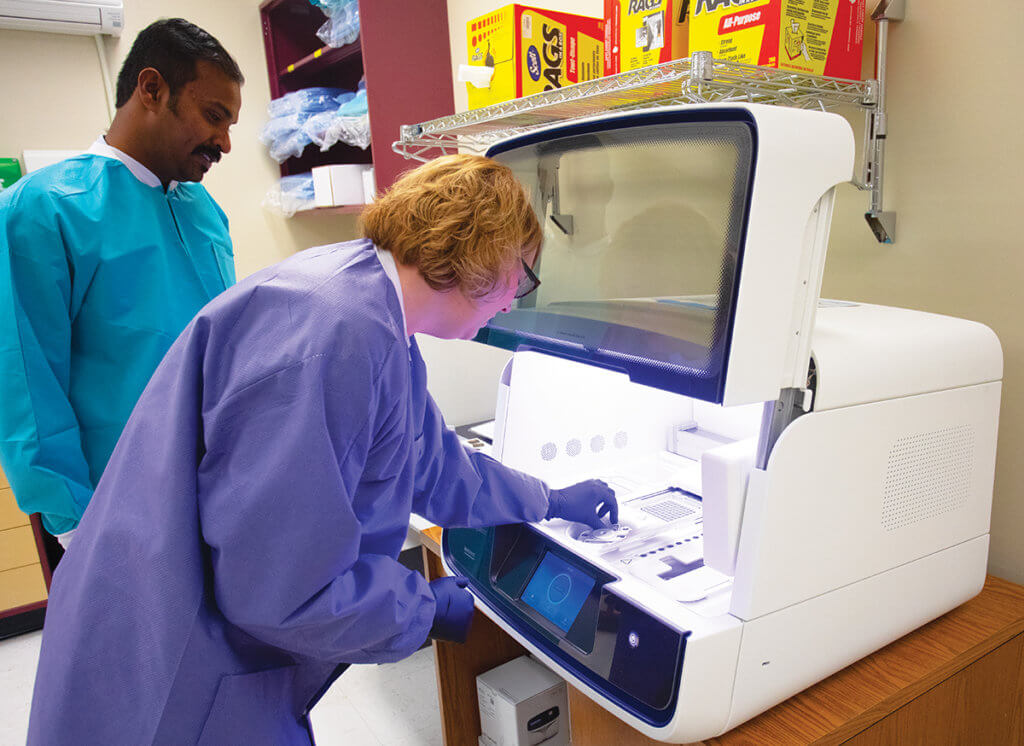
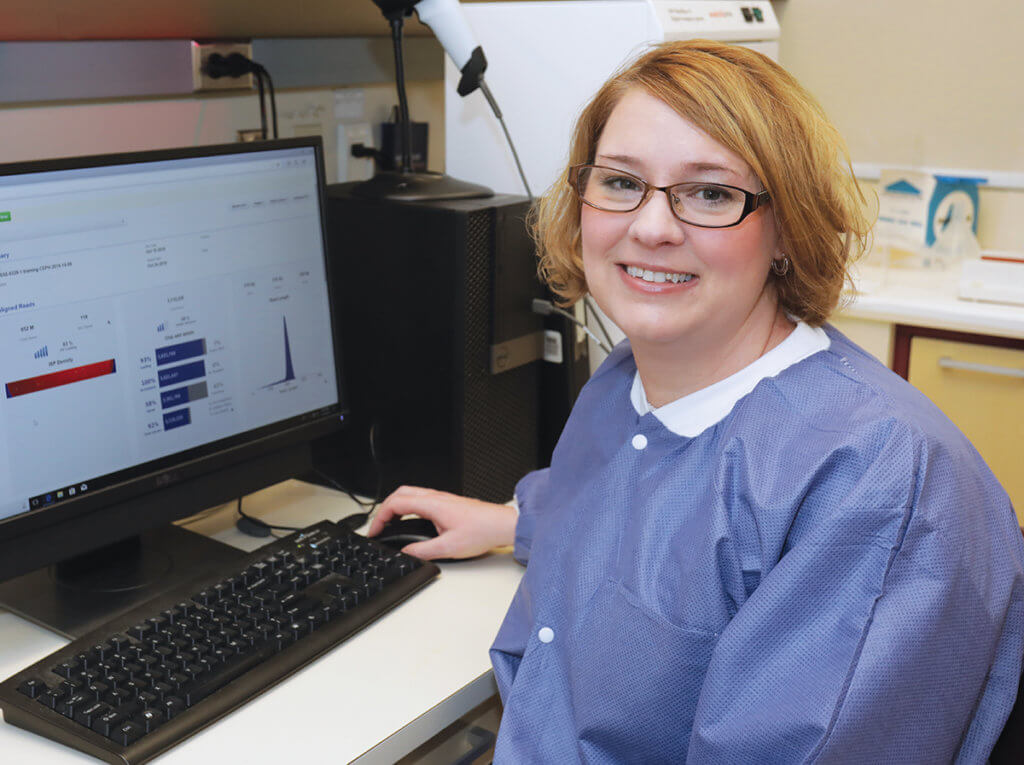
Dr. Rebecca Wilkes
Dr. Rebecca Wilkes received funding of $103,245 to develop a targeted next-generation sequencing panel for detection of infectious disease-causing agents in dogs. An assistant professor in the Department of Comparative Pathobiology, Dr. Wilkes also serves as section head for Molecular Diagnostics, Virology and Serology at the Indiana Animal Disease Diagnostic Laboratory (ADDL). She is collaborating with scholars at the Texas A&M University College of Veterinary Medicine and Biomedical Sciences and the University of Missouri-Columbia to develop the new diagnostic method that uses targeted sequencing of DNA to detect disease-causing agents with improved accuracy while reducing time and cost of diagnosis.
“I started this work while I was on the faculty at the University of Georgia and want to expand the panel to cover a large number of infectious agents including vector-borne pathogens that are transmitted by vectors like mosquitoes, ticks, and fleas,” Dr. Wilkes said. Since the next-generation sequencing method allows detection of hundreds to thousands of targets at a time, this assay panel is flexible and can be expanded to detect a wide range of pathogens or disease-causing agents. “If a dog is clinically ill and the veterinarian suspects an infectious disease, the veterinarian could request this all-inclusive panel, without having to pick and choose which pathogens to include for diagnostic testing,” Dr. Wilkes explained. “Sometimes vector-borne pathogens are missed just because the testing was not performed. Because of the comprehensive nature of the test, we think it will allow for better diagnostic capability and for surveillance.” The research team includes post-doctoral research associate, Jobin Kattoor, pictured above (left) with Dr. Wilkes.
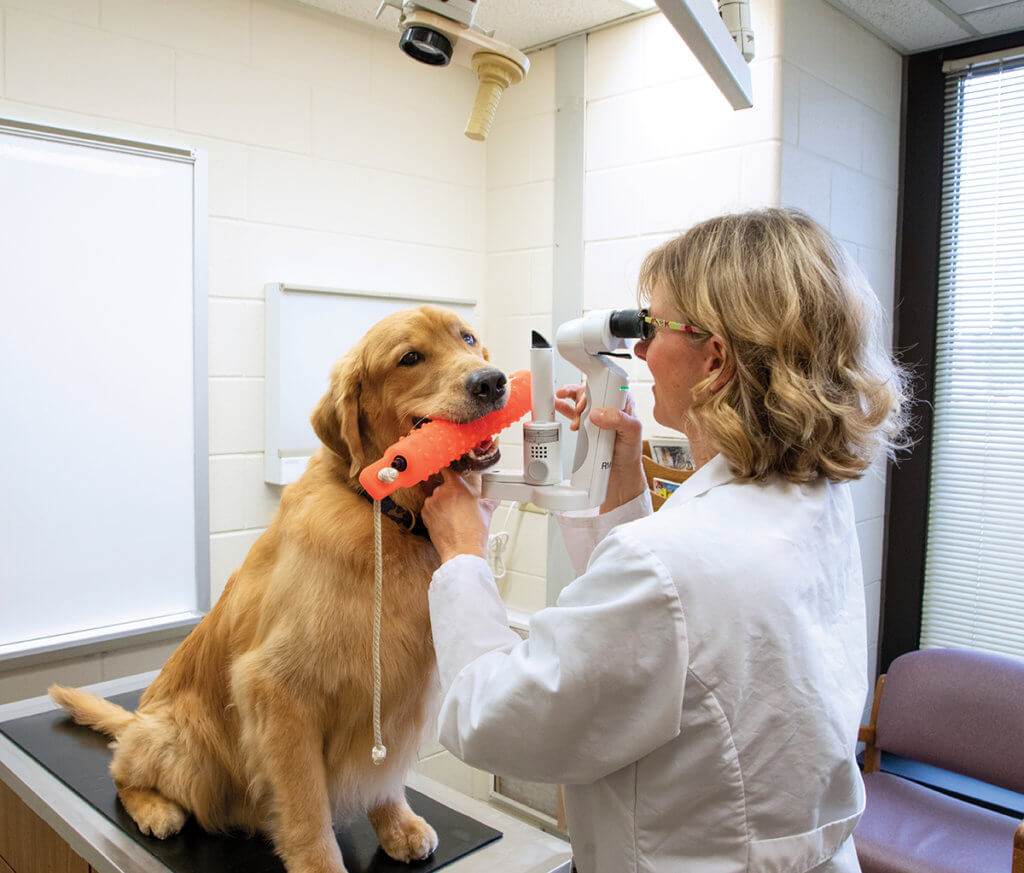
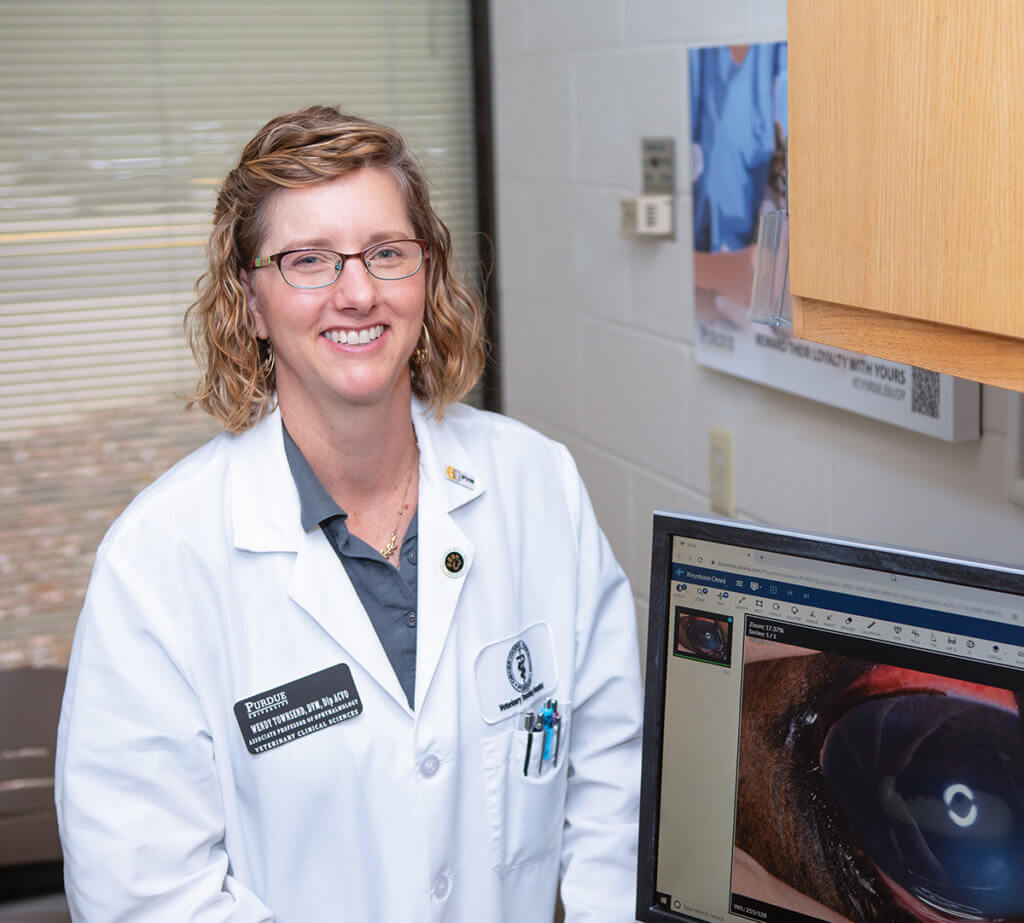
Dr. Wendy Townsend
Dr. Wendy Townsend, associate professor of ophthalmology in the Department of Veterinary Clinical Sciences, received two AKC grants for collaborative research studies on Golden Retriever pigmentary uveitis, an eye disease exclusively seen in purebred Golden Retrievers. A veterinary ophthalmologist in the Purdue Veterinary Teaching Hospital, Dr. Townsend is one of the leading researchers in the U.S. with expertise on pigmentary uveitis, an eye disease seen in 10 percent of senior Golden Retrievers. The disease can often result in blindness due to cataracts and glaucoma and there are no current methods to prevent or reverse the disease. Dr. Townsend explained that even though the disease is believed to be inherited, the onset and diagnosis occurs later in the life of affected dogs, after they have produced offspring. That’s why researchers are working on improved diagnostic methods to enable earlier detection, while also pursuing better ways to prevent as well as treat the disease.
An AKC grant of nearly $90,000 will fund research that Dr. Townsend is conducting with Dr. Ekenstedt as a co-principal investigator to identify genes and risk alleles that are associated with pigmentary uveitis. In a previous AKC funded study, the researchers determined that the disease involves not just one, but multiple genes. “From this new research study, we should be able to identify specific genes and alleles associated with this disease and create a genetic risk score to measure an individual’s genetic risk for developing pigmentary uveitis,” Dr. Townsend said. “Early identification of high-risk individuals will help with intervention prior to the onset of clinical signs. In addition, breeders will have the necessary knowledge to decrease the prevalence of this disease.”
Dr. Townsend also received a grant of $11,793 to support a study entitled, “Histologic Characterization of Golden Retriever Pigmentary Uveitis,” which she is conducting with co-principal investigator Dr. Yava Jones-Hall, former associate professor in the College’s Department of Comparative Pathobiology who now is director of the Core Histology Laboratory at Texas A&M University. Ophthalmologists have identified an undefined, amorphous or formless substance in the eyes of dogs affected with pigmentary uveitis that is known to increase cataract formation and cause glaucoma. In the newly funded study, the investigators will conduct a series of histological experiments to identify the chemical composition of the substance and the eye tissue that is producing it. “By understanding the composition and origin of the material, better preventative and therapeutic measures can be developed,” Dr. Townsend explained. “Our long-term goal is to develop strategies to either prevent the formation of this material or dissolve it once present.”
Collectively, the above-described studies funded by the AKC Canine Health Foundation will enable the College to expand its impact by advancing canine health in ways that also hold promise for advances in human health.

